Last week, to top off two weeks of nonstop shooting, I headed to Craftsbury Commons, my home base while I picked up my project on local food and farming in Vermont, which I’ve realized I want to expand a little bit by exploring other areas of the state. Stuart Sobeleski, all-around awesome farmer, hosted me at Sterling College.
I found myself learning quite a few new things as I wandered around the massive greenhouses at Pete’s Greens, observed biodynamic farming at Heartbeet Lifesharing, and helped Sterling students slaughter and prepare their own chickens for this weekend’s commencement dinner. I think this, in particular, is important to show because there is a cycle of life and death involved in food production that most consumers would rather avoid talking about altogether.
Even in Vermont’s rural areas, this disconnect is apparent: In Nicola Smith and Geoff Hansen’s book Harvest: A Year in the Life of an Organic Farm, Smith shares how a local paper published a story about a traveling Vermont butcher, accompanied by photos of the butcher slaughtering animals. This caused a flurry of angry emails and protests from readers, who deemed the butcher barbaric and cruel, the newspaper sensationalist and tasteless for publishing the story. The butcher was considered one of the best in the state, but it didn’t really matter; most of us would prefer to not think about where our next hamburger is coming from. I appreciate the conveniences of modern life, but I sometimes wonder if food shouldn’t play a bigger part in our lives.
I plan to shoot more on related topics and look forward to a plentiful and beautiful summer of farming in Vermont!
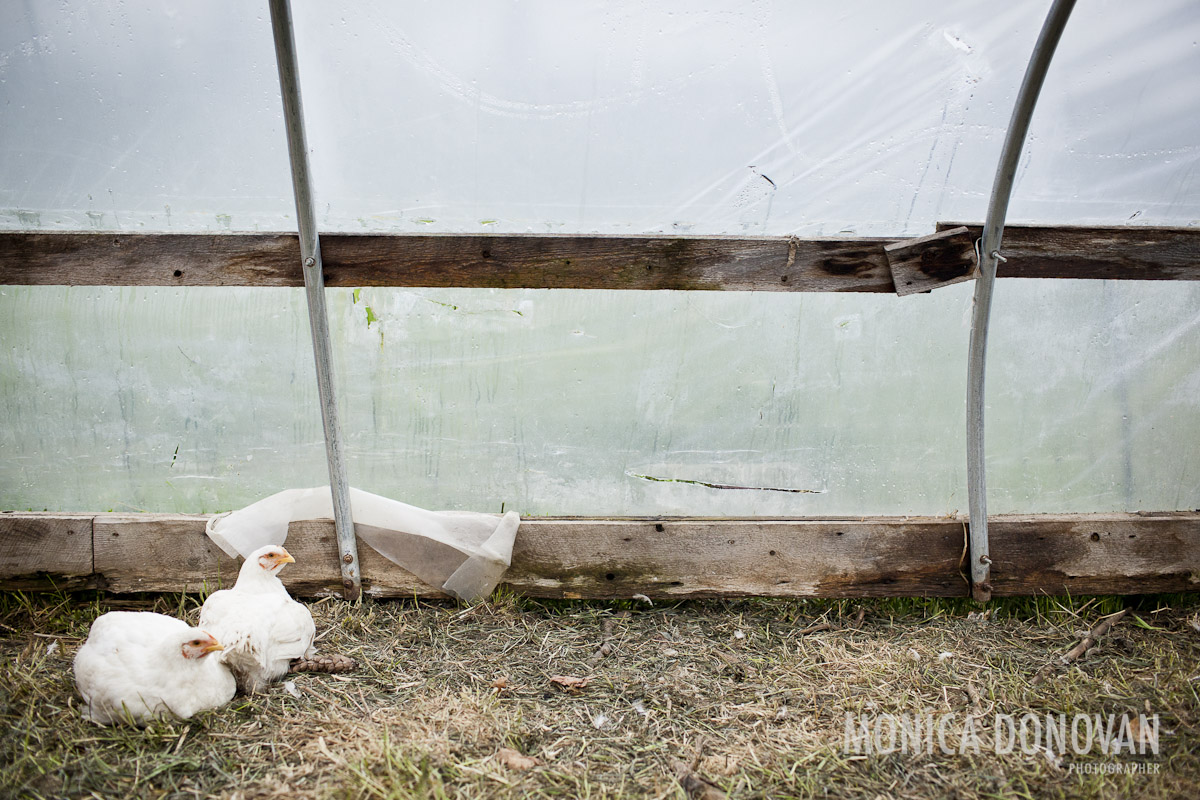
Chickens before slaughter at Sterling College in Craftsbury Common, Vermont. Students and staff raised 50 chickens, with the intent of serving them up at the college's 2012 commencement dinner.
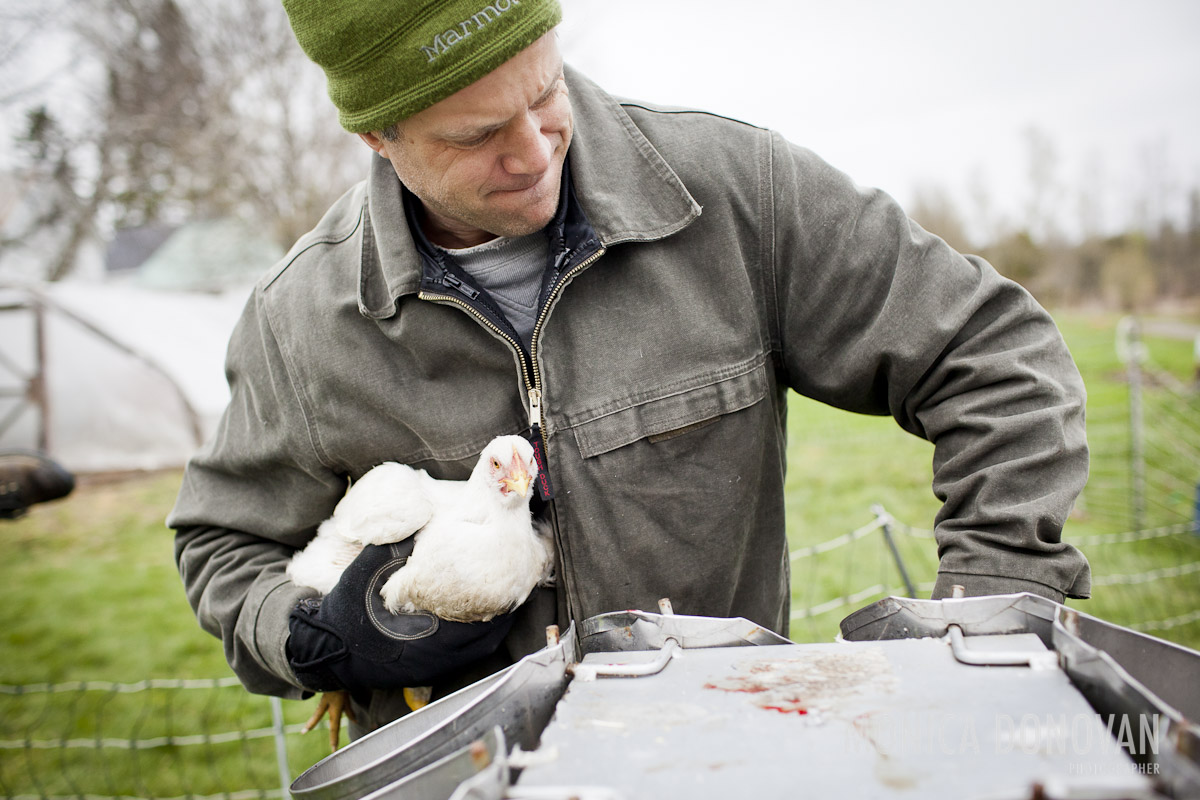
A Sterling College professor shows students how to place chickens into metal slaughtering cones.
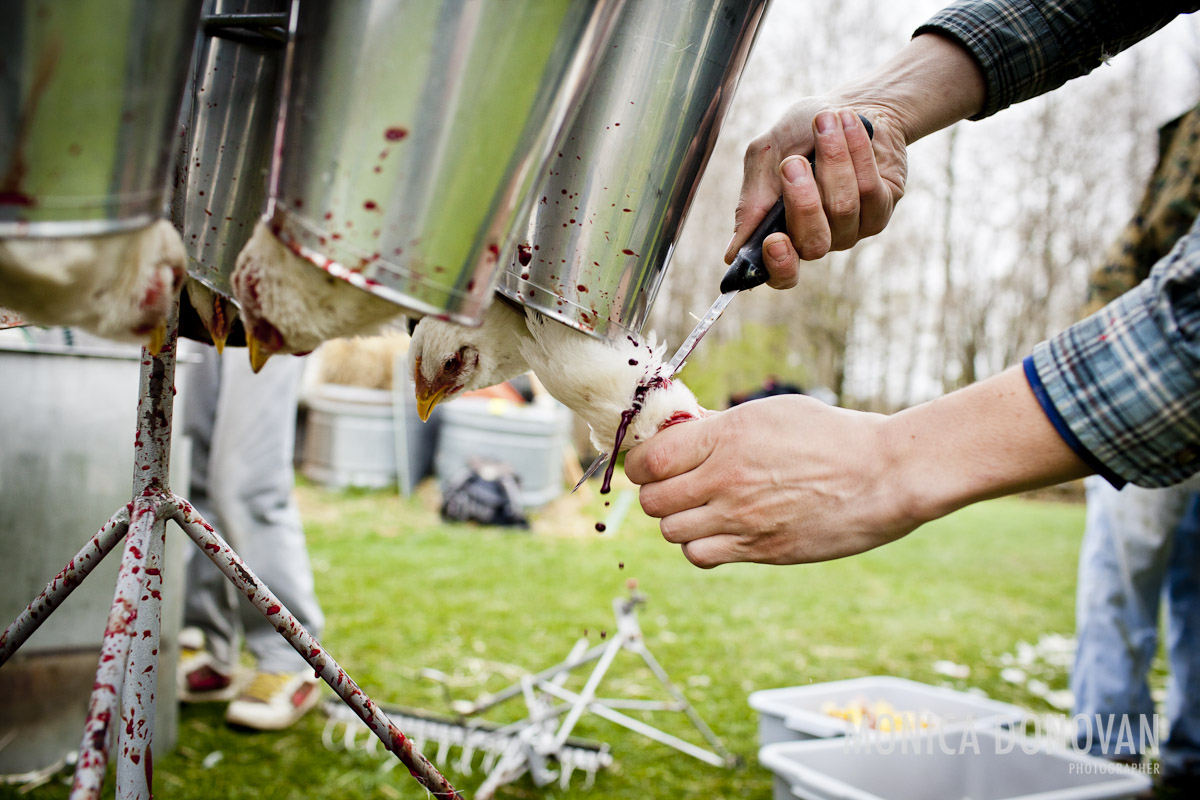
A student cuts the throat of a chicken using a metal slaughtering cone system. One must be careful not to cut the windpipe, or the blood sucks into the organs and tinges the meat.
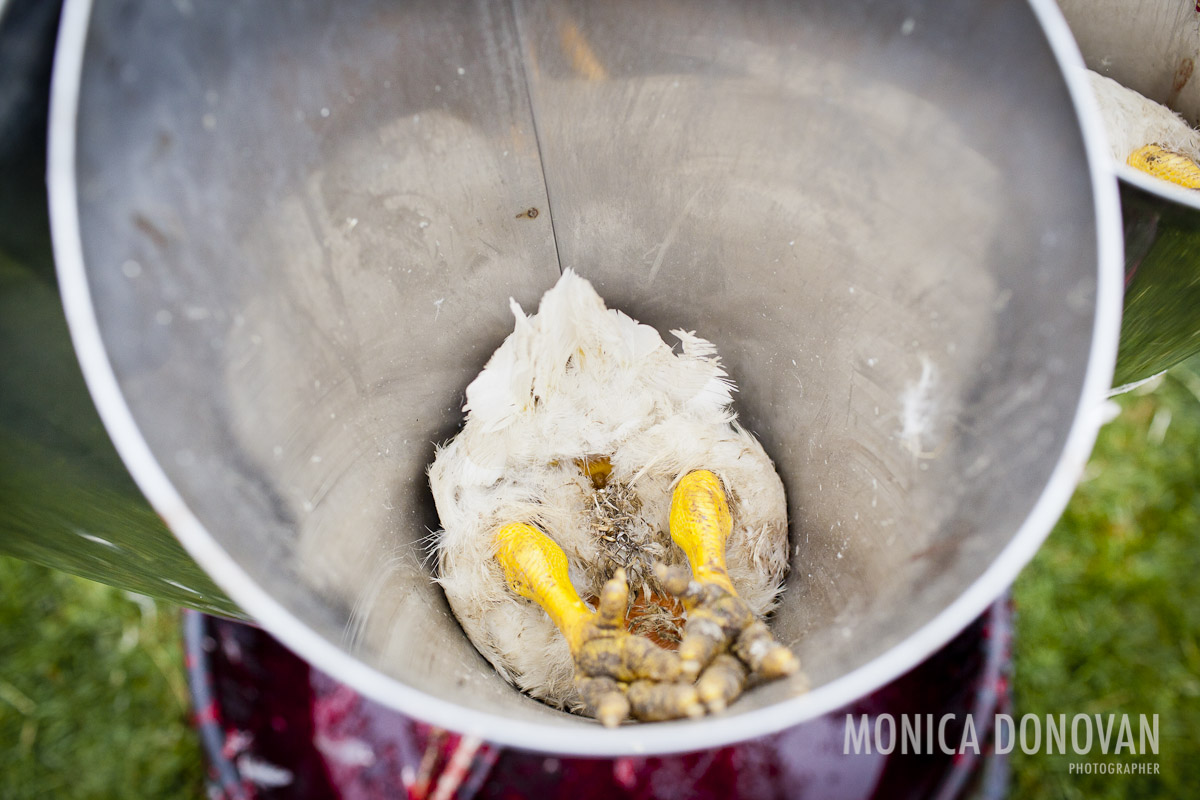
Metal cones make it easier and more efficient to slaughter and drain chickens.
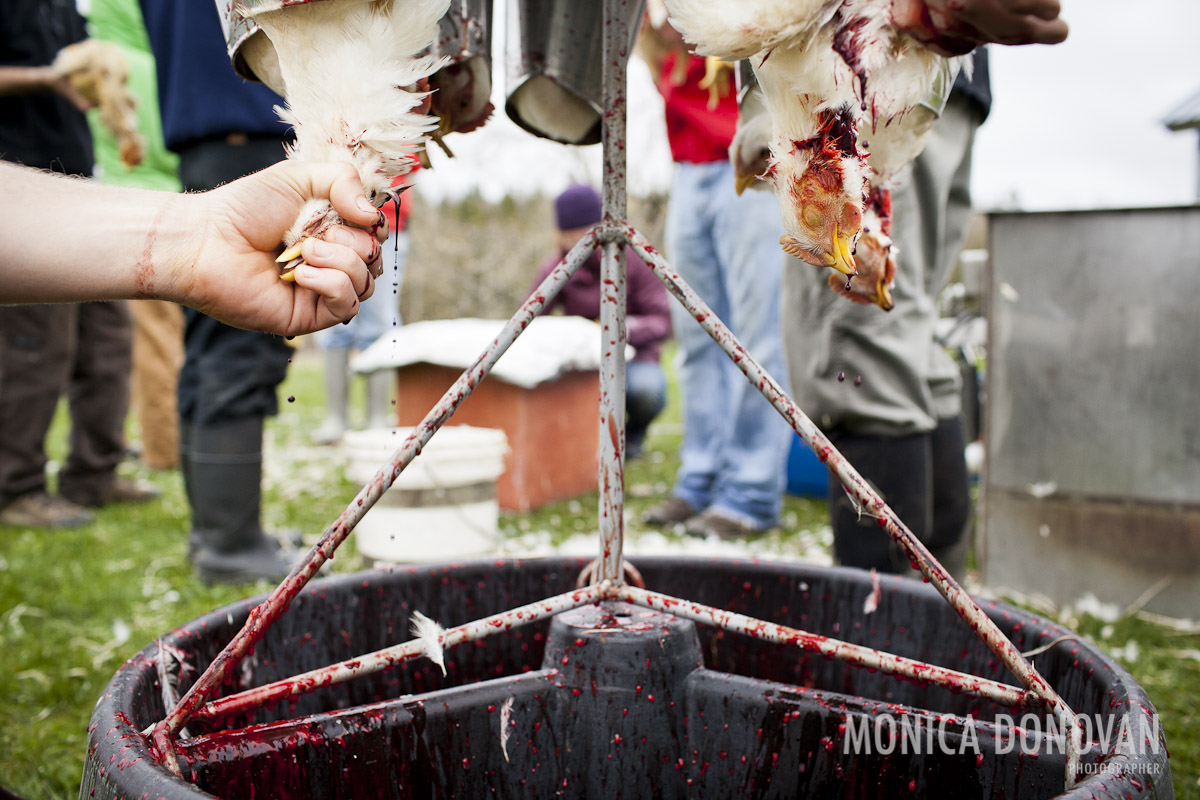
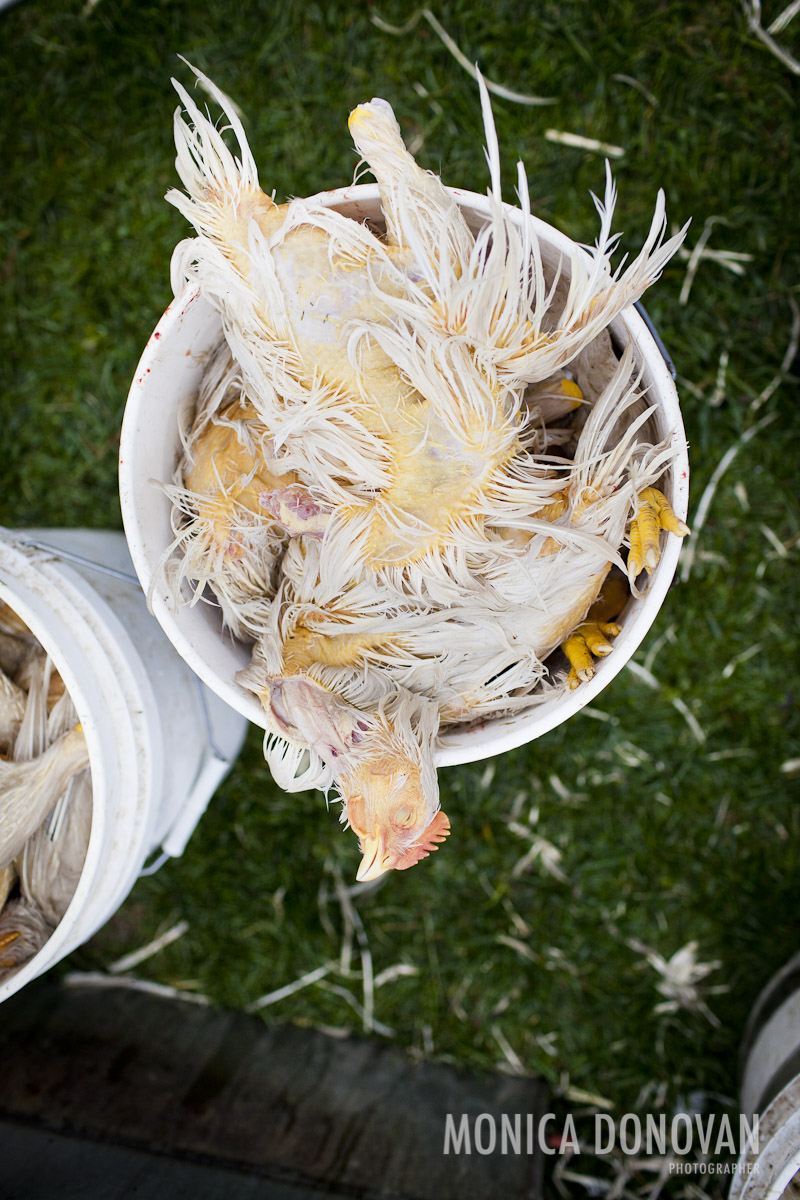
A chicken, after being slaughtered and bled, but before going into the motorized tub plucker that will remove most of its feathers. The chickens are also dipped in hot water (150˚F) to loosen feathers first.
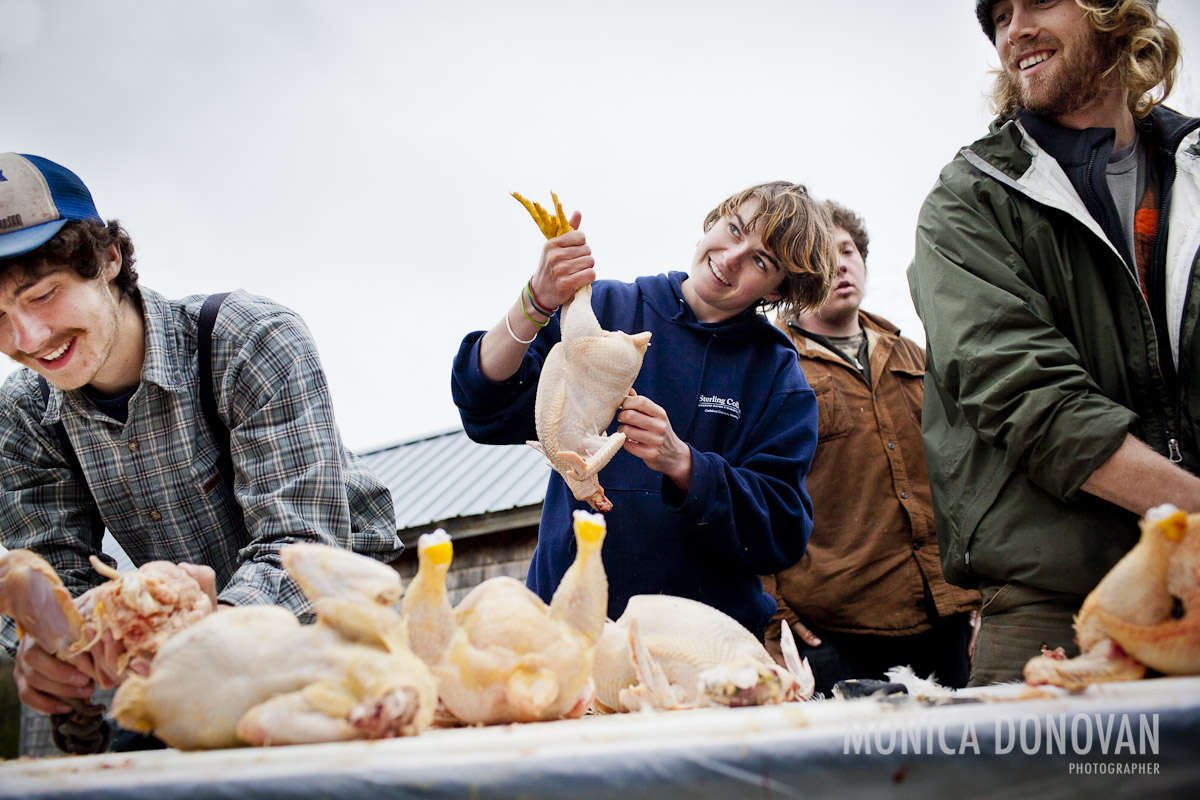
Students help pluck and eviscerate chickens for the weekend's commencement dinner. Several of the students, despite being vegetarian, participated in the class anyway.
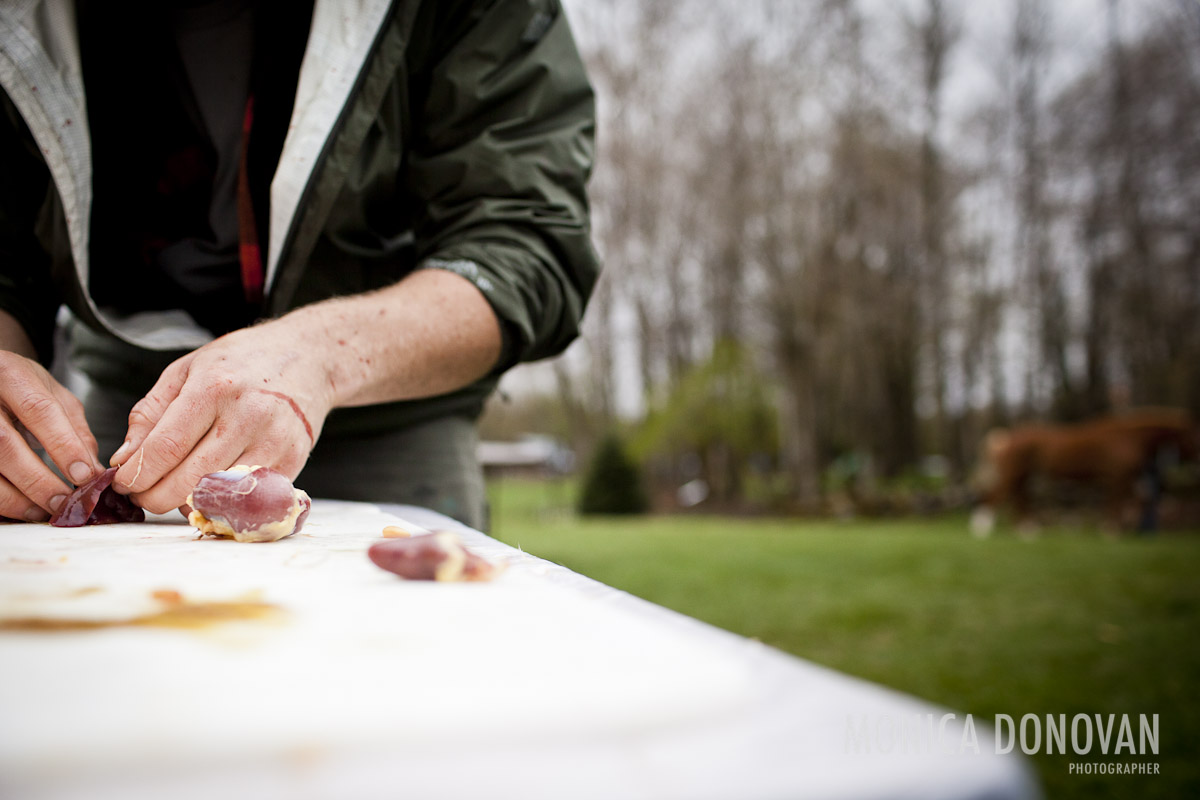
Students prepare freshly slaughtered chickens in the backyard of Sterling College.
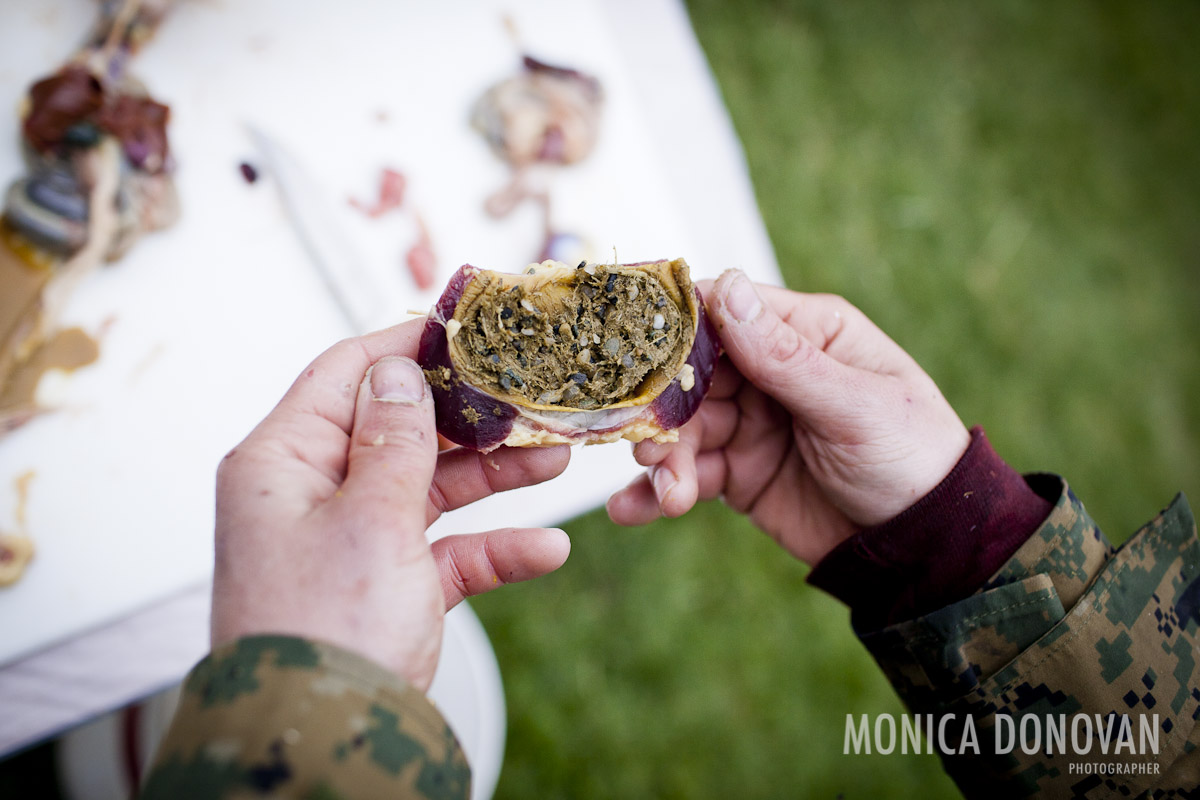
A student shows the inside of a chicken gizzard, which can be cleaned out, cooked and eaten.
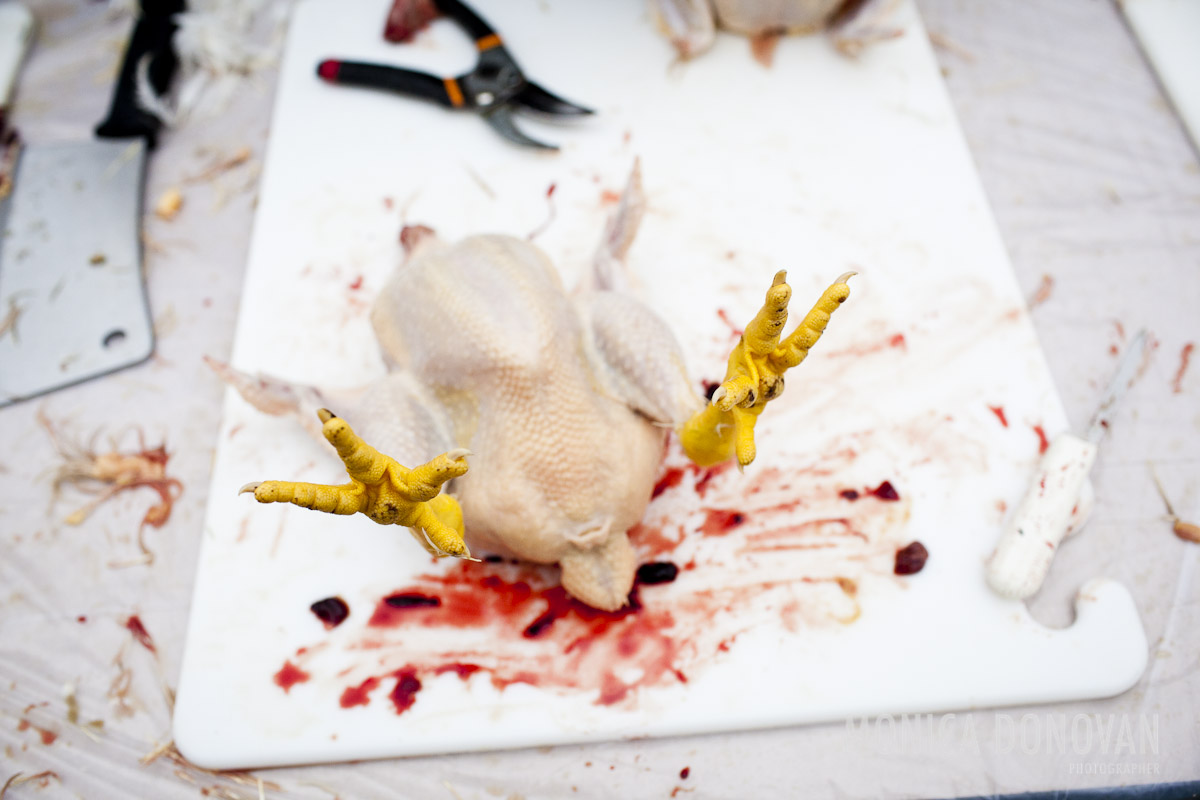
Often, chicken feet are saved as a treat for dogs.


1 comment